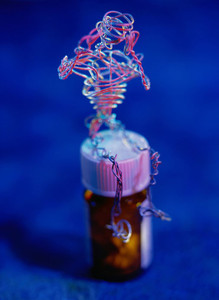Teva Pharmaceutical Industries’ (Teva’s) new Chief Executive vowed to reshape the drugmaker and reduce annual costs by up to US$2 billion over the next five years, making it into ‘the most indispensable medicines company in the world’.
Teva cost-cutting and re-organization
Home/Pharma News
|
Posted 14/12/2012
 0
Post your comment
0
Post your comment

Mr Jeremy Levin, who took over as CEO of the Israel-based company in May 2012, also said on 11 December 2012 in a meeting with analysts and investors in New York he would pursue small- to mid-size acquisitions, as well as divestitures of certain non-core assets.
The generics giant plans to end five mid- and late-stage research programmes and focus drug-development efforts on respiratory and central nervous system illnesses as the company seeks to replace medicines set to lose patent protection in the next three years. The looming 2015 patent expiration of its most important brand-name product, the multiple sclerosis drug Copaxone, which accounts for about 20% of Teva sales and around 50% of its profits, is a driving force in the re-shaping of Teva.
Teva sells more generic drugs than any company in the world. However, Mr Levin said he would focus on what Teva is calling new therapeutic entities. Those could be new uses, formulations, delivery methods or combinations of existing products.
Mr Levin’s strategy marks a shift for Teva from growth through large acquisitions towards developing more profitable brand-name drugs through research and licensing agreements.
Toward that end, Teva said it will pay Xenon Pharmaceuticals US$41 million upfront and as much as US$335 million in development, regulatory, and sales-based milestones for experimental drug XEN402, which is in clinical development for the treatment of chronic pain.
Related articles
FDA approves first generics to treat high blood pressure and kidney disease
Teva outlines expansion plans in Asia
Teva takes over joint venture solidifying its position in Japan
Permission granted to reproduce for personal and educational use only. All other reproduction, copy or reprinting of all or part of any ‘Content’ found on this website is strictly prohibited without the prior consent of the publisher. Contact the publisher to obtain permission before redistributing.
Source: Reuters, The Wall Street Journal
Guidelines
US guidance to remove biosimilar comparative efficacy studies
New guidance for biologicals in Pakistan and Hong Kong’s independent drug regulatory authority
Policies & Legislation
WHO to remove animal tests and establish 17 reference standards for biologicals
Formycon signs new aflibercept biosimilar pacts and launches ranivisio in Europe

Home/Pharma News Posted 13/11/2025
Bio-Thera and Stada expand biosimilars alliance to include tocilizumab

Home/Pharma News Posted 20/10/2025
The best selling biotechnology drugs of 2008: the next biosimilars targets








Post your comment